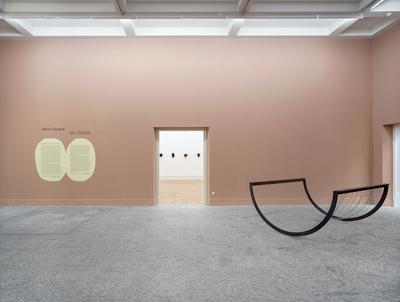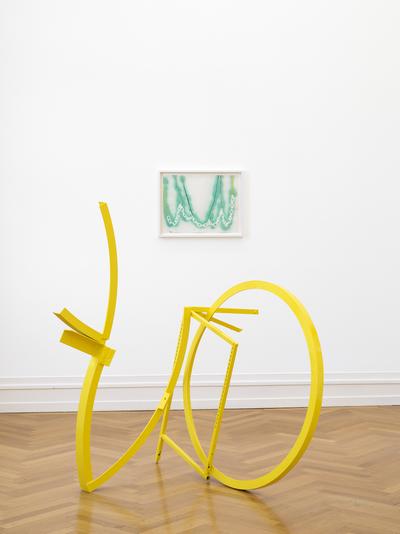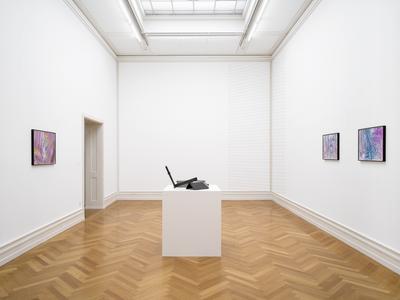Listen to the audioguide.
Kunsthalle Bern is proud to present the first comprehensive solo exhibition in Switzerland of US artist Melvin Edwards (*1937).
Born in Houston, Texas, Edwards began his career in the early 1960s, at the height of the American civil rights movement. Since then, he has been recognized as a formative voice in contemporary African American art. His overall practice deals with the history of race, labor and violence – interconnected concepts that are in dialogue with historical moments: slavery and segregation in the US, the civil rights movement, Pan-Africanism, and the continuous dialogue between the cultural African diaspora, African American artists, and artists of the African continent. These themes are addressed through works such as his much-celebrated series Lynch Fragments – or works such as Homage to Oba Ewuare II of Benin City, Nigeria (2017), presented here.
Welding is Edwards’ central creative medium: his practice is a powerful study in abstraction. The works range from installations made of barbed wire to complex assemblages of steel and iron – all reminiscent of agricultural and industrial materials. These materials and structures occupy our past and present, steering us towards finding parallels between labor and life in what many call today the Plantationocene. In addition to his sculptures, the exhibition showcases lesser-known works on paper that use the technique of relief, revealing again the shapes of chains, barbed wire, and other elements.
The exhibition attempts to offer glimpses into the cultural universe within which Edwards developed his work. From his Swiss art professor Hans Burkhardt to his encounter with Jayne Cortez – a prominent poet and voice of the activist cultural movement of the 1960s who later became his wife – to his neighbor and friend Ana Mendieta. Instances of his life are revealed, like a trip Mendieta organized in 1981 to Cuba, where Edwards and other US artists like Martha Rosler met with Cuban intellectuals and artists. The music of John Coltrane, Thelonious Monk, Charlie Parker, and Ornette Coleman, and the writings of Richard Wright, Langston Hughes, Édouard Glissant and other thinkers, are also part of this presentation showcasing the cultural universe within which Edwards flourished.
The exhibition is organised with Fridericianum in Kassel and Palais de Tokyo in Paris, each institution presenting a different interpretation.
The exhibition of Melvin Edwards is generously supported by the Dr. Georg und Josi Guggenheim-Stiftung and the Ernst und Olga Gubler-Hablützel Stiftung


